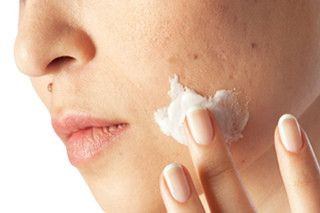Researchers Have Found Bacteria That Protect From Acne

Researchers from UCLA and Washington University in St. Louis discovered that a strain of bacteria commonly found on the skin can protect against acne.
Published in the Journal of Investigative Dermatology, researchers utilized the cutting edge technology of high throughput sequencing that sequences DNA thousands of times faster than previous techniques.
Researchers isolated bacteria from the skin of noses of 49 people who suffers from pimples and 52 who had clear skin. They found that one species in particular, Propionibacterium acnes, that was known to cause pimples and found that both groups had the species.
But when they looked deeper and sequenced the genomes of all 66 strains of the bacteria, they found that there were two strains that were prevalent on the skin of clear skinned people and one strain that was over-represented on people who had acne.
"We were interested to learn that the bacterial strains looked very different when taken from diseased skin, compared to healthy skin," said co-author Dr. Noah Craft, a dermatologist and director of the Center for Immunotherapeutics Research at LA BioMed at Harbor-UCLA Medical Center. "Two unique strains of P. acnes appeared in one out of five volunteers with acne but rarely occurred in clear-skinned people."
"We were extremely excited to uncover a third strain of P. acnes that's common in healthy skin yet rarely found when acne is present," said Dr. Li, who is also a member of UCLA's Crump Institute for Molecular Imaging. "We suspect that this strain contains a natural defense mechanism that enables it to recognize attackers and destroy them before they infect the bacterial cell."
The researchers stated that they want to pursue research now that selectively kills the bad strain of P. acnes and maybe produce a face cream that would encourage the growth of the good strains. They have patented a few of the strains that were found on the skin of clear skinned individuals.
The usual treatment for acne and pimples is to dry out the skin using Accutane or broad antibiotics, both of which can have severe side effects.
The research that was published in the Journal of Investigative Dermatology can be found here.
Published by Medicaldaily.com



























